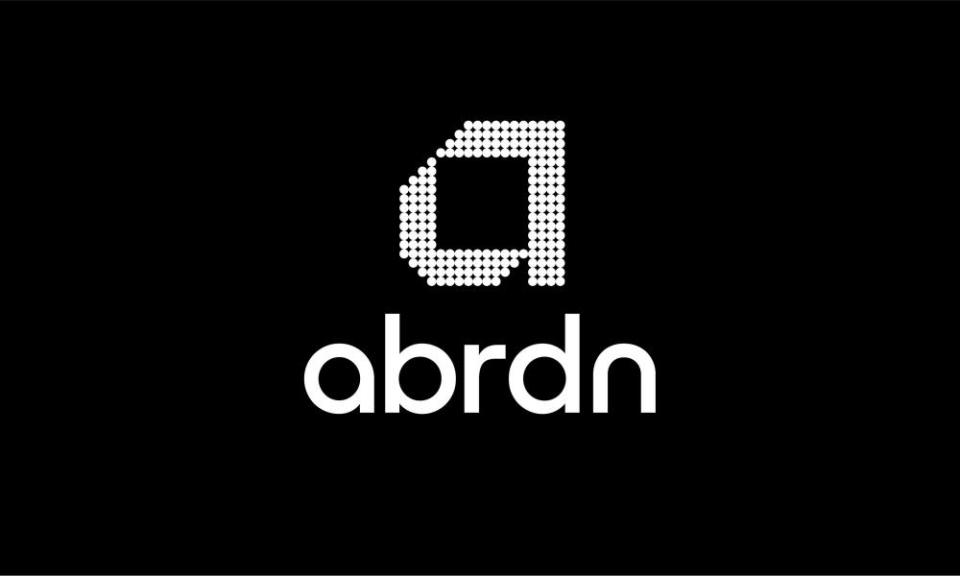Too cool for schl? Linguists pour scorn on Abrdn rebranding

Should we be worried for the English language when companies drop their vowels to appear more modern? No, say leading linguists, but a company rebranding is wrong because it is ill-judged, confusing and is definitely not the zeitgeist. It stnks.
Standard Life Aberdeen announced on Monday a name change to Abrdn, joining brands such as Flickr, Scribd, Grindr and Tumblr in dropping vowels from their names. The move was met with bafflement and scorn from linguists, who wondered if the name was now pronounced Aburden, Abradon or Aberdeen.
“To me it just smacks of old people trying to use youth language, or wanting to speak like teenagers, which is always a mistake,” said Rob Drummond, a reader in linguistics at Manchester Metropolitan University and an expert in the language of young people. “It looks like older people desperately trying to sound cool.”
You can picture the board meeting, said Drummond. “‘How can we make ourselves edgy? Look at Tumblr, Flickr, Grindr. That’s what we’ll do!’ But it only works with certain words.”
Abrdn has all sorts of problems, he added. “For me, that r gets in the way, I start reading it as Abradon. It doesn’t click.”
Those sentiments were echoed by the linguist David Crystal, author of countless books on the English language. “It isn’t like Flickr and Grindr, which are pronounceable, as they follow the phonotactics of English and they have just one omitted vowel, so the pronunciation is easy to deduce.
“Abrdn has two omissions, and gives us a consonant sequence that is unusual, and takes time to work out. The best brand names are easily pronounceable.”
How concerned is Crystal? “Familiarity does eventually breed content, so it might start a trend.”
Standard Life Aberdeen, a company that dates back to 1825, said the change reflected a “modern, agile, digitally enabled brand”.
But does it? Will Barras, a language and linguistics lecturer at the University of Aberdeen, said: “It’s not edgy and modern really and, in some respects, it is old-fashioned in that it has echoes of late-90s early text message speak.”
Back then there were howls of concern that young people were on the brink of illiteracy because of dropping vowels – “gr8 hope 2 c u there” and so on.
That did not play out, said Barras and it is now less of a thing. “Everyone has smart phones which makes it much more difficult to not put vowels in words because of autocorrect.”
Barras said there were also many early examples of things we think are modern but are not really. For example, the now ubiquitous OMG was used in 1917 in a letter from an admiral, Lord Fisher, then in his 70s, to Winston Churchill. “I hear that a new order of knighthood is on the tapis – OMG (Oh! My God!).”
He said dropping vowels did work in some cases. The singer HRVY, for example, gets away with it because the r can be seen as a long vowel sound and the y essentially represents a vowel.
Brands dropping vowels is clearly a thing “but we don’t need to be worried, or annoyed,” said Laura Bailey, senior lecturer in linguistics at the University of Kent.
“For as long as people have been writing, they have been taking vowels out … look at telegrams.
“If you take a vowel out, you stand a good chance of guessing what fills the gap. If you take out the consonants, it’s unrecoverable.”
Bailey was more sympathetic to brands dropping vowels than some. “Linguistically there is nothing wrong with it. It taps into a trend and communicates this idea of being modern and digital and on-trend – perhaps they are a few years too late for that, but that is the idea they are going for.”
Calbert Graham, a senior research associate at the University of Cambridge, said brands dropping vowels could be about encouraging people to scratch their head and think what the word was.
He said: “That may be the effect that the company is aiming for. And if it is, as a rebranding exercise it would be rather clever.”

 Yahoo Finance
Yahoo Finance 